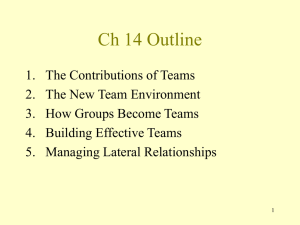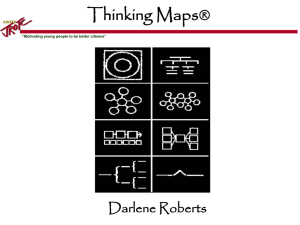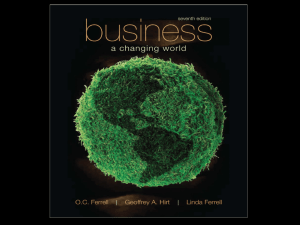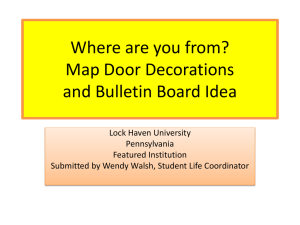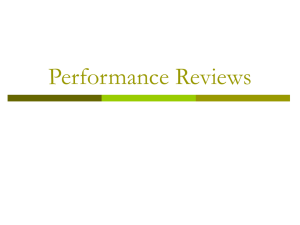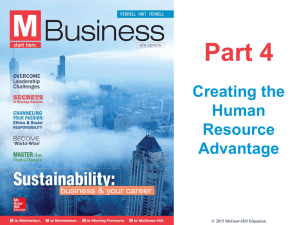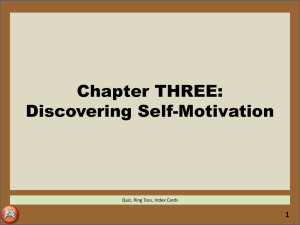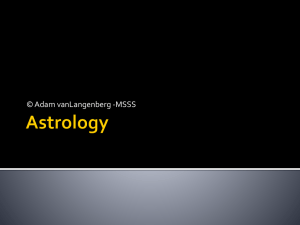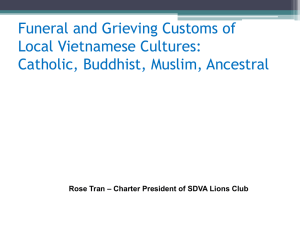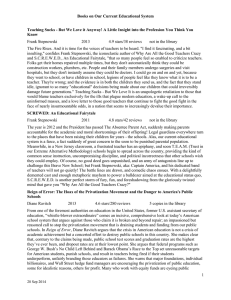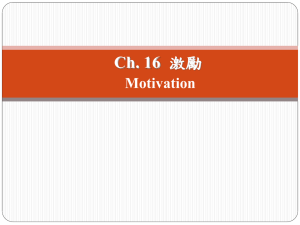Maintaining Employee Morale in a Down Economy
advertisement
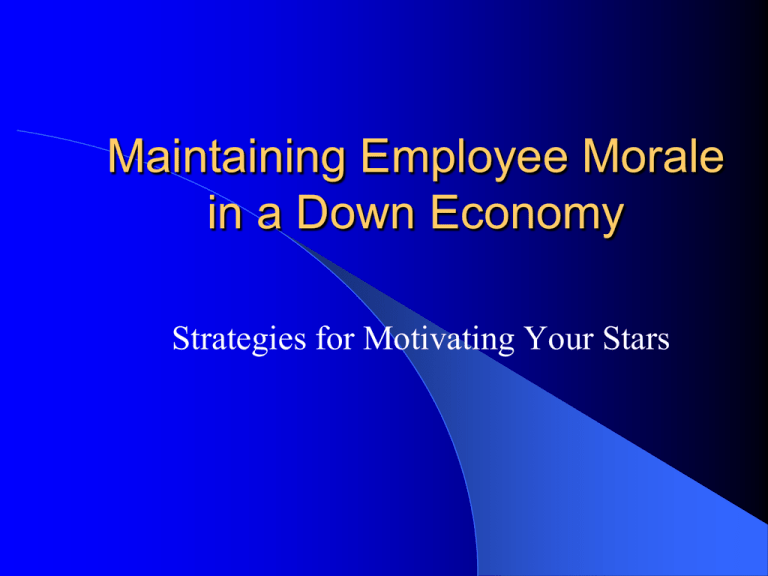
Maintaining Employee Morale in a Down Economy Strategies for Motivating Your Stars Here’s What I Believe There’s a big difference between building morale and motivating people Motivating is a lot tougher Building spirit is critical to a well-functioning department; motivating your “stars” is key to retaining them Creating motivated employees (especially when times are tough) is your #1 responsibility Today’s Reality Lower stock prices Salary cuts and freezes Smaller staffs and more work Cutbacks in training and travel Added responsibilities with little prep Limited communications flow Lack of challenge It’s Not the Down Economy You Should Be Worried About – It’s the Up Market! There’s A Storm Coming … It could wreak havoc with internal relationships It could upset your structure and your teams It could increase pressure It could cost you and your companies money! What Can You Do Today? Strategies for Success Don’t forget the basics Create a new culture of leadership Develop special programs for special needs Take a new look at performance reviews Don’t Forget the Basics Rewards and recognition build spirit – Staff dinners,celebrations – “Something special” awards – Annual offsite and quarterly meetings – Rewards tied to the “little things” – R&R/creative “rooms” Don’t Forget the Basics Challenge yourself – CEO acknowledgement builds motivation – Nothing succeeds like a sincere “thank-you” – Create opportunities for staff interaction – E-mail/notes to your stars – Attendance at key meetings – Budget support for training and development Create A New Leadership Culture The ability to “influence other people’s emotions, feelings, attitudes and their determination …the ability to connect – on a human level – with many different types of people.” David Maister An internal coach who is willing to focus on the needs of others to ensure the success of the enterprise Create a New Leadership Culture Motivation cannot be delegated Attend meetings you used to pass up Open your door and your phone lines Practice “walking the halls” management Build relationships with instant feedback “What’s in it for them?” Share the vision Create a New Leadership Culture Rate yourself as a coach – If you don’t ask, how will you know? – Share ratings with staff – What can I do better? Increase/deepen communication with your stars – Encourage “personal” conversations and then follow-up on what you hear – Learn how to make people tell you how they feel and what they need; acknowledge what you hear – Conduct focus groups and personal assessments The DISC Assessment Helps people understand their own strengths and behavior tendencies Helps managers observe and understand how staff tends to cope, relate to others, use their strengths strategically Helps the team understand their behavior styles to improve working relationships The DISC Assessment Defines ideal work environment Identifies motivational tips Improves communication Helps employee communicate better with others Describes how others perceive them Create Special Programs for Special Needs Training and skills building – Leadership and management – Remedial coaching – Life/balance issues – Team dynamics Business issues – Company plans – Marketing strategies/competitive issues – Involve corporate/division management Take a New Look at Performance Reviews Opportunity for you – Put greater emphasis on career development – Focus supervisors on what they really need – Reevaluate structure and organization to create new challenges – Make it an ongoing process to head off surprises Take a New Look at Performance Reviews Opportunity for them – Critical to career pathing – Identifies wants and desires – Creates roadmap for promotion and new responsibilities – Offers opportunities to improve current work environment – Concentrate on strengths, not weaknesses The Bottom Line Think motivation not just morale Motivation cannot be delegated Motivation requires a deep commitment to understand what makes your people “tick” Motivation also requires new behavior and a willingness to change your habits and beliefs
